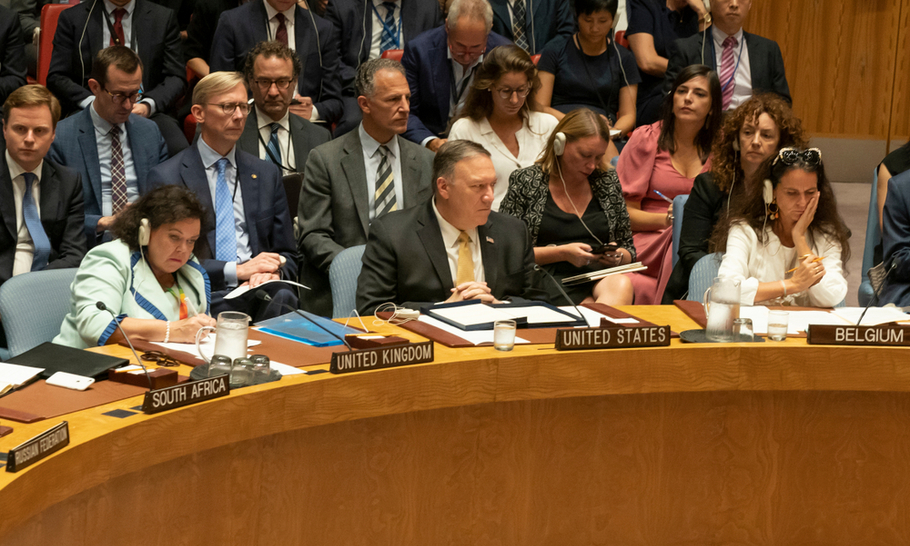If Britain wants to keep influence overseas, it needs to spend

UN security council, NY, 2019. (Shutterstock)
It was not very diplomatic for the Foreign Secretary, Dominic Raab, to instruct British diplomats to “sit separately” from European national embassy officials, but all he was doing was spelling out the new reality of British representation overseas.
Anyone who has seen the silky French Monsieur l’ambassadeur, the thoroughly prepared Herr Doktor Bostschafter from Germany, or the usually properly-lunched Ambasciatore from Italy will learn fast they represent their nations first, and the EU second, if at all.
At international gatherings, ambassadors or national officials sit behind the country’s name, either in English or French and sometimes a little flag, so Mr Rabb can rest assured the UK diplomat was rubbing shoulders with his or her opposite number from the United Arab Emirates or the United Republic of Tanzania and is far away from any European.
Where Britain may lose out is that most mornings at the UN in New York, or at the various UN agencies in Geneva like the World Health Organisation, or the UN bodies on human rights, or the International Labour Organisation, all of which adopt policies or conventions which affect Britain, there is a coordination meeting of EU ambassadors or specialist officials.
These meetings allow EU member states to develop a common line, so that, when faced with big powers like America, China or Russia, Europe spoke as one.
A British ambassador can also pick up inside information. The well-staffed and multi-lingual EU representation offices can ferret around getting political intelligence.
When I was an FCO minister working in Latin America, the Balkans or Asia I always asked the British ambassador to organise a breakfast or dinner to invite as many EU ambassadors as possible. I would also invite the Papal Nuncio, as the Vatican’s foreign service has not only a millennium of diplomatic experience but also intelligence sources of higher quality than those the public school and Oxbridge tyros of MI6 will ever get to know.
Britain’s voice was magnified as our diplomats persuaded their EU colleagues of the wisdom of a British policy line, such as sanctioning Robert Mugabe, or insisting that Balkan war criminals should face justice.
Mr Raab’s officials will dutifully carry out his instructions, but they will speak only for the UK. In the past if the British government got the EU to speak for what it wanted, the message had more clout.
When Britain joined the EEC, the FCO had 0.5 per cent of government spending to represent the UK abroad. That has now fallen to 0.1 per cent and the number of British diplomats is far smaller than the number in either the French or German foreign services.
Whatever else Brexit means, it will require the UK to spend far more on overseas representation. Only that way can we maintain the heft we had through cooperation and coordination with our former EU partners.





